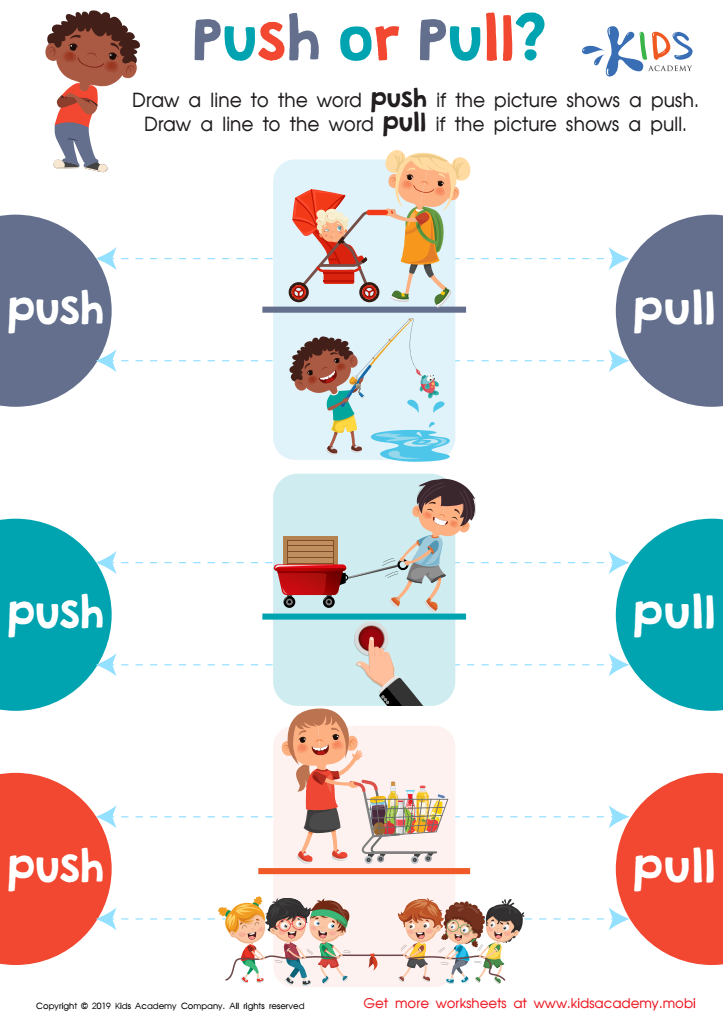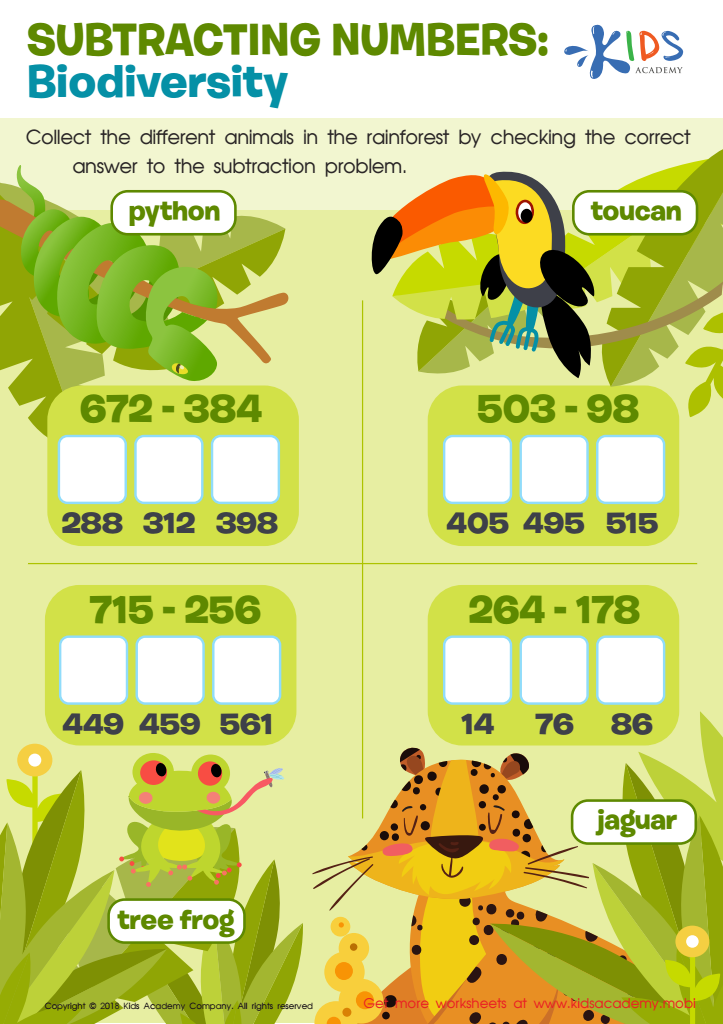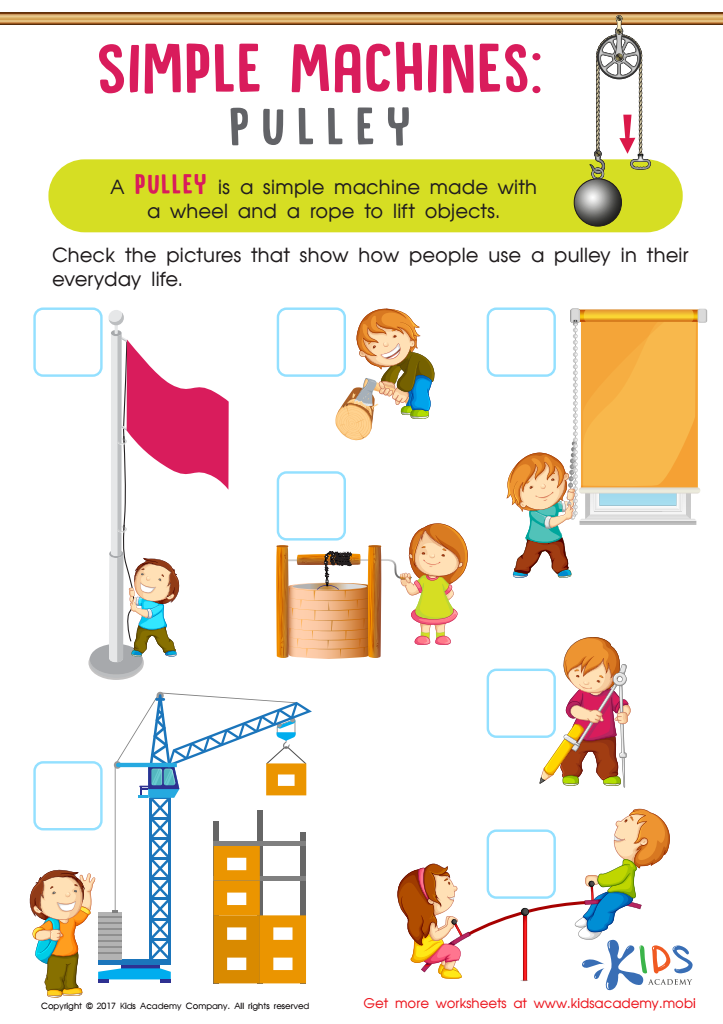Enhancing analytical thinking Worksheets for Ages 4-7
4 filtered results
-
From - To
Welcome to our collection of "Enhancing Analytical Thinking Worksheets" designed for children ages 4-7! These engaging worksheets aim to foster critical thinking and problem-solving skills through fun and age-appropriate activities. Each worksheet encourages young learners to analyze patterns, make connections, and explore various scenarios, enhancing their ability to think logically. With vibrant illustrations and interactive exercises, kids will enjoy developing their analytical skills while learning at their own pace. Perfect for both classroom settings and home practice, our worksheets make learning a delightful adventure. Empower your child’s mind and watch them grow into confident thinkers!


Push or Pull? Worksheet


Subtracting Numbers: Biodiversity Worksheet


Simple Machines Pulley Worksheet
Enhancing analytical thinking for children aged 4-7 is crucial as it lays the foundation for critical life skills that will benefit them throughout their education and beyond. At this developmental stage, children become increasingly curious and begin to make sense of the world around them. By fostering their analytical thinking skills, parents and teachers empower them to explore problems, inquire, and evaluate information critically.
Engaging in analytical activities helps children hone their decision-making skills, enabling them to analyze outcomes and consider different perspectives. It cultivates creativity, as they learn to think outside the box and develop solutions to various challenges. Additionally, strong analytical thinking contributes to improved communication skills; children learn to articulate their thoughts and engage in discussions effectively.
Moreover, analytical skills are intertwined with STEM education and literacy, vital areas in today’s academic landscape. As children learn to observe, categorize, and infer, they develop a love for inquiry and lifelong learning. Ultimately, investing in analytical thinking at a young age promotes resilience, adaptability, and self-confidence, essential traits for success in an increasingly complex world. Parents and teachers, therefore, play a pivotal role in nurturing these skills, leading to well-rounded, critical thinkers.

 Assign to My Students
Assign to My Students





















